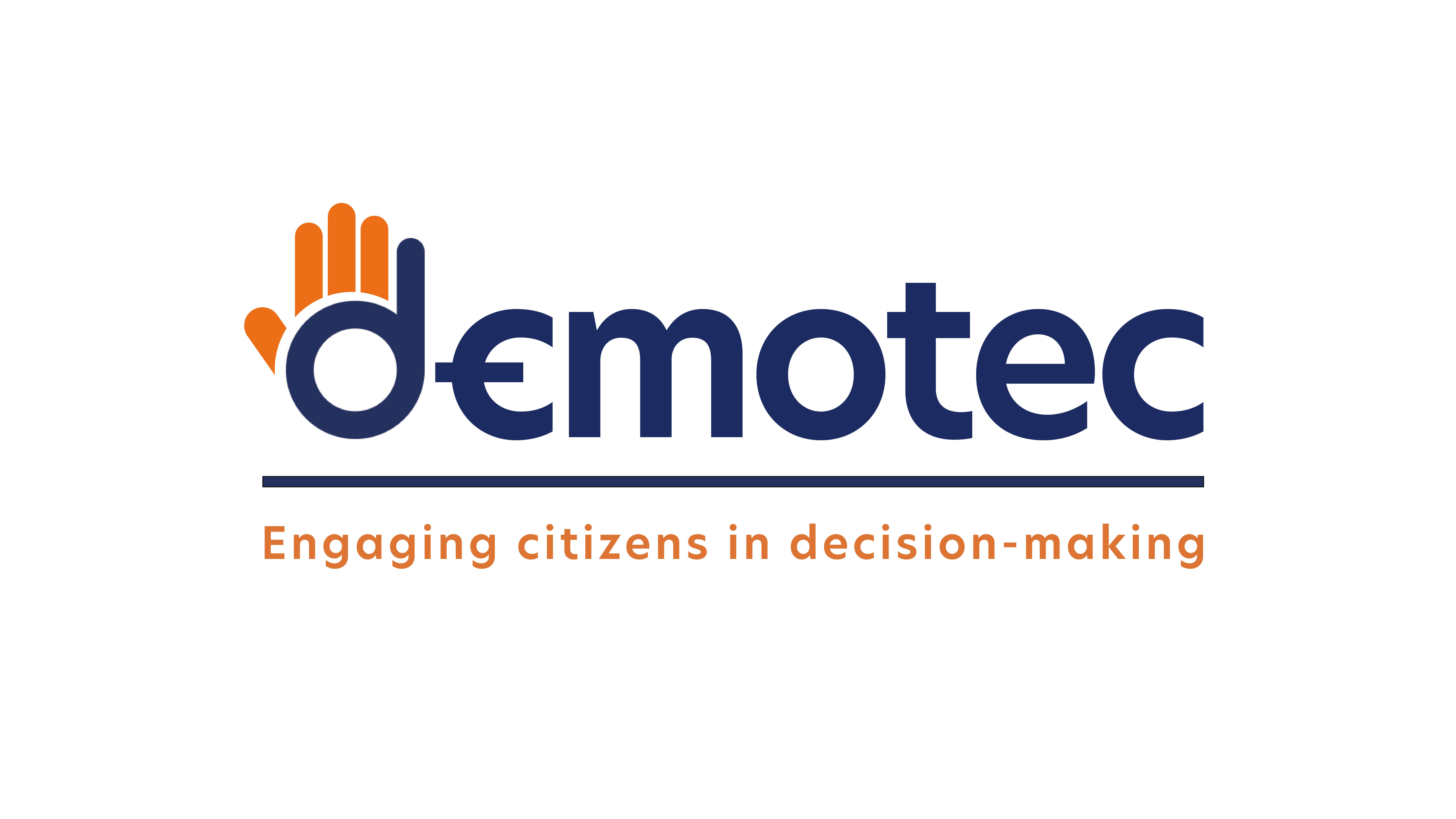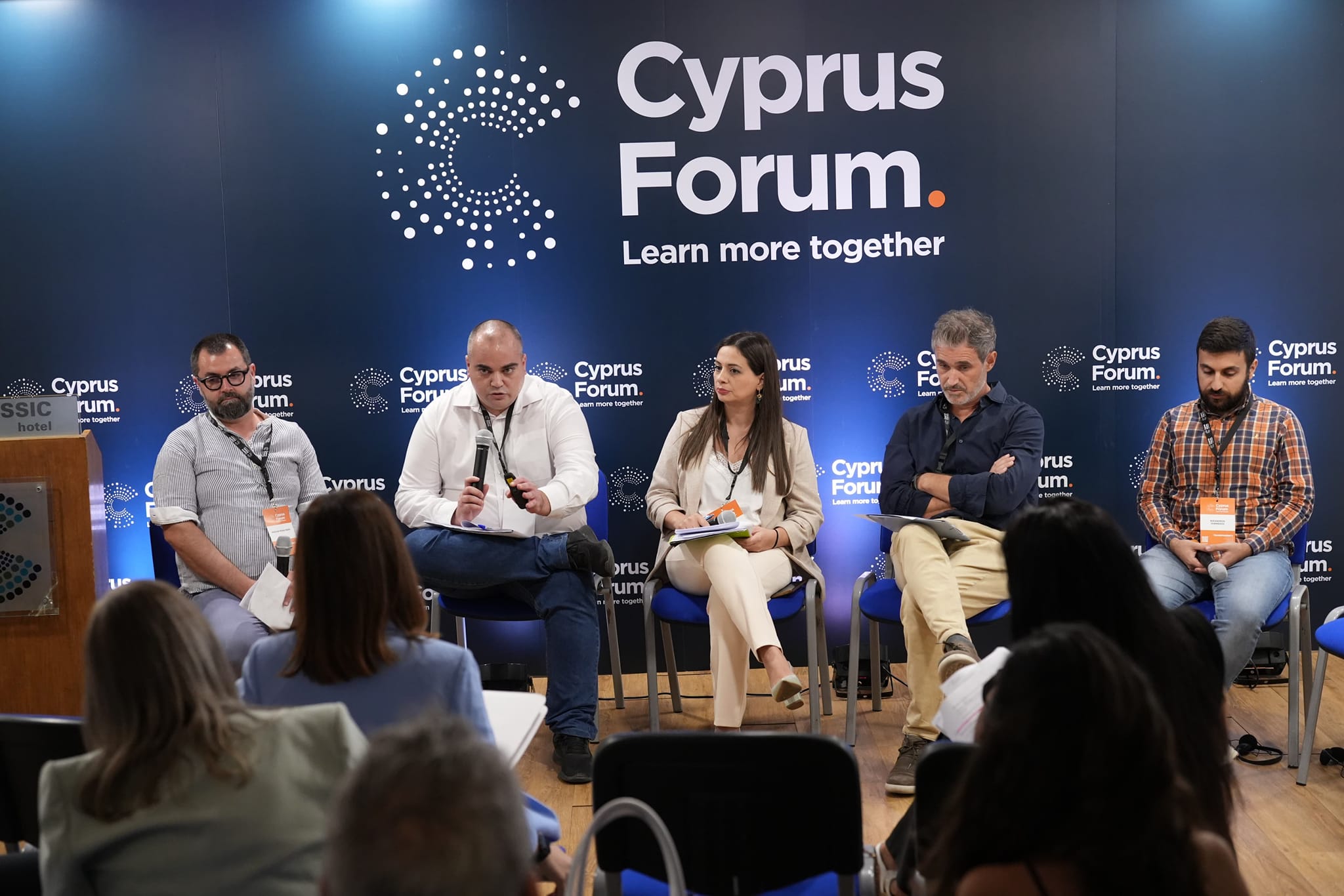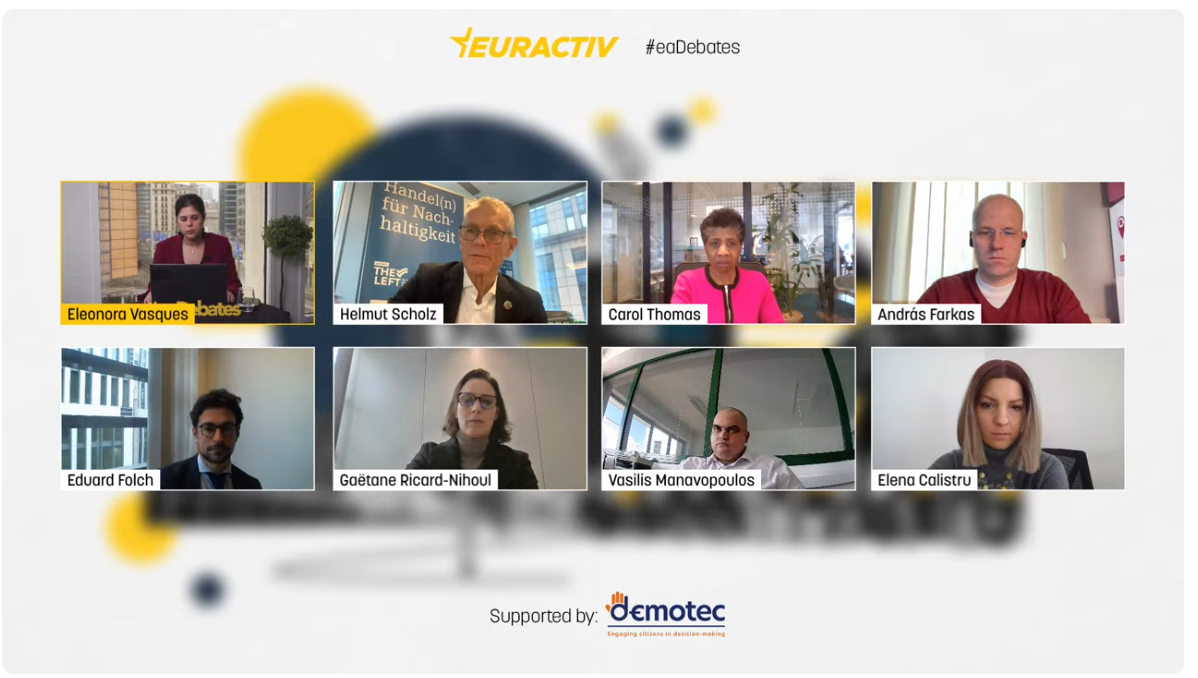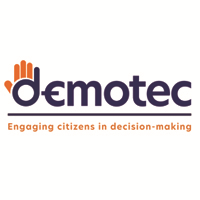In an era when democratic engagement is more critical than ever, the H2020 DEMOTEC research project stands as a beacon of innovation and inclusivity. Spearheaded by the Cyprus University of Technology (CUT), DEMOTEC focuses on whether and how Participatory Budgeting (PB), a democratic innovation via which citizens are granted a say on how public budgets are used, can improve citizen engagement at the local level and help reconnect citizens with policy-making processes.
Essentially, this EU-funded initiative addresses the growing disconnect between political institutions and the public by leveraging democratic innovations aiming to increase citizen participation, trust in governance and social justice through the re-allocation of funds.
The DEMOTEC project has received funding from the European Union’s Horizon 2020 Research and Innovation Programme under Grant Agreement no 962553. It has a budget of 2,827,546.25 euros and will complete its workings at the end of July 2024. The consortium consists of the Cyprus University of Technology (Coordinator), University of Strathclyde (UK), Politechnika Wrocławska (Poland), Universitatea Babeș-Bolyai (Romania), The Democratic Society AISBL (Belgium), Erasmus Universiteit Rotterdam (Netherlands) and EURACTIV Media Network BV (Belgium).
The project involves a multidisciplinary methodological approach, applying innovative methods including experiments, computational text analysis of big data, representative surveys, framing and discourse analysis, and case studies in seven urban communities across Europe: Cyprus, Greece, Ireland, the Netherlands, Poland, Romania, and Scotland.
The work of DEMOTEC expands across three main axes: the media, citizens and policy-makers. To address the first axis, the project analysed a big data corpus comprising news media stories and Tweets in nine languages (English, French, Greek, Spanish, Polish, Dutch, Romanian, German and Portuguese). PB coverage is increasing following the growing implementation of PBs around the world. However, despite positive representations of PB which is framed as a democratic tool fostering accountability and citizen empowerment, overall media coverage is limited and superficial; news stories about PB is the result of standardised means of news production rather than explanatory and analytical stories aiming to truly inform the citizenry. In a similar vein, journalists express mixed positions pertaining to journalism’s role in supporting and promoting PB. Despite positive perceptions of PB as a tool to democratise policy-making, journalism professionals question institutional capacity to implement transparent and effective PBs viewing PB as not newsworthy. Analysis of over 300.000 Tweets in nine languages containing the phrase ‘participatory budgeting’ showed that PB was mentioned mainly by organisations, and when by individuals, mostly by people formally involved in the process.
The second axis of the project revolved around citizens and PB. Simulations of PB were run exploring how PB design affects participants, process and outcomes. 120 participants in each partner country were assigned to three experimental focus groups while 100 participants per country participated online only. While the experiments resulted in all groups rating participatory budgeting higher than before, the jump was more pronounced for face-to-face groups than online. This could suggest the value of social interaction for community-based decision-making.
Additionally, representative surveys were conducted online across the case study countries plus Germany, France and Spain (sample: 4.000 citizens). The results revealed low degree of awareness of PB across all countries except Poland, where it has been legally mandated. The key predictors of PB support were institutional and social trust; pre-existing civic engagement, such as volunteering; education; and a prior interest in politics. Making PB mandatory, making involvement as open as possible and options to propose projects, were all cited as favorable to participation.
Empowering Democracy: A Handbook on Implementing Participatory Budgeting in the EU
The third axis is about policy-making. To that end and in response to the growing need for democratic renewal and citizen engagement across the European Union, our forthcoming handbook aims to serve as a comprehensive guide to the implementation of participatory budgeting (PB). Our central objective is to develop a policy agenda for PB within the EU framework. Through the "Handbook of EU Participatory Budgeting," we propose a set of principles and priorities tailored to the context of the EU Cohesion Policy and related funding programs. By setting measurable objectives and outcomes, we aim to make a significant contribution to the democratic renewal of local communities, regional bodies, national perspectives, and the EU as a whole.
The handbook is carefully designed to cater to civil servants and officials across various levels, from EU institutions to local governments in member states. It is scheduled to be published in the summer of 2024.
Contents of the Handbook
When the handbook is published, you will be able to find the following contents:
1. Roadmap for Civil Servants, Policymakers, and Stakeholders: Offering actionable insights and recommendations for promoting inclusive decision-making processes in local, regional, and national contexts.
2.Examples of PB: Showcasing many examples from participating DEMOTEC partners and others to illustrate practical applications and successes of PB.
3. Theoretical Foundation: Providing an accessible theoretical foundation for policymakers, civil servants, and politicians. This section presents key dilemmas and issues that require careful deliberation and decision-making and sets the stage for practical applications and challenges in citizen engagement.
4. Empirical Insights from DEMOTEC Research: Presenting key findings and experiences from various studies, offering practical insights into contemporary challenges.
5. Policy Recommendations: Outlining actionable principles and priorities for EU funding and policy frameworks, as well as national and local authorities. These recommendations are tailored to address the diverse needs and contexts within the EU.
Value of the Handbook
The "Handbook of EU Participatory Budgeting" is a valuable resource for several reasons:
- Guidance for Practitioners: It offers practical advice and examples for civil servants and policymakers to effectively implement PB.
- Educational Resource: Provides a theoretical and empirical foundation that can be used in academic settings to teach about PB and democratic innovation.
- Policy Influence: The recommendations can influence EU, national, and local policies to promote more inclusive and democratic governance structures.
- Community Empowerment: By promoting PB, the handbook supports the empowerment of citizens, enabling them to have a direct say in how public funds are used in their communities.
Social Impact of the Universities
Universities play a crucial role in fostering social impact through educational programs, research initiatives, and community engagement. By integrating PB into their curriculum and involving students in real-world applications, universities can:
- Enhance Civic Engagement: Educating students about democratic processes and encouraging active participation in community decision-making.
- Promote Social Responsibility: Instilling a sense of responsibility and commitment to societal well-being among students and faculty.
- Facilitate Community Development: Partnering with local governments and organizations to implement PB, thereby directly contributing to the development and empowerment of local communities.
- Drive Policy Innovation: Conducting research that informs policy and practice, leading to more effective and inclusive governance at various levels.
The societal impact of DEMOTEC is profound. By democratising decision-making processes, the project not only enhances the quality of governance but also strengthens the fabric of society. Increased civic participation leads to more informed and empowered citizens, fostering a culture of trust and collaboration. Furthermore, DEMOTEC exemplifies the research excellence of the Cyprus University of Technology, and highlights the university's commitment to advancing democratic principles and improving public life through innovative research.
Ανακαλύψτε ευκαιρίες ενεργειακής αναβάθμισης μέσω του εργαλείου ENERFUND
In an era when democratic engagement is more critical than ever, the H2020 DEMOTEC research project stands as a beacon of innovation and inclusivity. Spearheaded by the Cyprus University of Technology (CUT), DEMOTEC focuses on whether and how Participatory Budgeting (PB), a democratic innovation via which citizens are granted a say on how public budgets are used, can improve citizen engagement at the local level and help reconnect citizens with policy-making processes.
Essentially, this EU-funded initiative addresses the growing disconnect between political institutions and the public by leveraging democratic innovations aiming to increase citizen participation, trust in governance and social justice through the re-allocation of funds.
The DEMOTEC project has received funding from the European Union’s Horizon 2020 Research and Innovation Programme under Grant Agreement no 962553. It has a budget of 2,827,546.25 euros and will complete its workings at the end of July 2024. The consortium consists of the Cyprus University of Technology (Coordinator), University of Strathclyde (UK), Politechnika Wrocławska (Poland), Universitatea Babeș-Bolyai (Romania), The Democratic Society AISBL (Belgium), Erasmus Universiteit Rotterdam (Netherlands) and EURACTIV Media Network BV (Belgium).
The project involves a multidisciplinary methodological approach, applying innovative methods including experiments, computational text analysis of big data, representative surveys, framing and discourse analysis, and case studies in seven urban communities across Europe: Cyprus, Greece, Ireland, the Netherlands, Poland, Romania, and Scotland.
The work of DEMOTEC expands across three main axes: the media, citizens and policy-makers. To address the first axis, the project analysed a big data corpus comprising news media stories and Tweets in nine languages (English, French, Greek, Spanish, Polish, Dutch, Romanian, German and Portuguese). PB coverage is increasing following the growing implementation of PBs around the world. However, despite positive representations of PB which is framed as a democratic tool fostering accountability and citizen empowerment, overall media coverage is limited and superficial; news stories about PB is the result of standardised means of news production rather than explanatory and analytical stories aiming to truly inform the citizenry. In a similar vein, journalists express mixed positions pertaining to journalism’s role in supporting and promoting PB. Despite positive perceptions of PB as a tool to democratise policy-making, journalism professionals question institutional capacity to implement transparent and effective PBs viewing PB as not newsworthy. Analysis of over 300.000 Tweets in nine languages containing the phrase ‘participatory budgeting’ showed that PB was mentioned mainly by organisations, and when by individuals, mostly by people formally involved in the process.
The second axis of the project revolved around citizens and PB. Simulations of PB were run exploring how PB design affects participants, process and outcomes. 120 participants in each partner country were assigned to three experimental focus groups while 100 participants per country participated online only. While the experiments resulted in all groups rating participatory budgeting higher than before, the jump was more pronounced for face-to-face groups than online. This could suggest the value of social interaction for community-based decision-making.
Additionally, representative surveys were conducted online across the case study countries plus Germany, France and Spain (sample: 4.000 citizens). The results revealed low degree of awareness of PB across all countries except Poland, where it has been legally mandated. The key predictors of PB support were institutional and social trust; pre-existing civic engagement, such as volunteering; education; and a prior interest in politics. Making PB mandatory, making involvement as open as possible and options to propose projects, were all cited as favorable to participation.
Empowering Democracy: A Handbook on Implementing Participatory Budgeting in the EU
The third axis is about policy-making. To that end and in response to the growing need for democratic renewal and citizen engagement across the European Union, our forthcoming handbook aims to serve as a comprehensive guide to the implementation of participatory budgeting (PB). Our central objective is to develop a policy agenda for PB within the EU framework. Through the "Handbook of EU Participatory Budgeting," we propose a set of principles and priorities tailored to the context of the EU Cohesion Policy and related funding programs. By setting measurable objectives and outcomes, we aim to make a significant contribution to the democratic renewal of local communities, regional bodies, national perspectives, and the EU as a whole.
The handbook is carefully designed to cater to civil servants and officials across various levels, from EU institutions to local governments in member states. It is scheduled to be published in the summer of 2024.
Contents of the Handbook
When the handbook is published, you will be able to find the following contents:
1. Roadmap for Civil Servants, Policymakers, and Stakeholders: Offering actionable insights and recommendations for promoting inclusive decision-making processes in local, regional, and national contexts.
2.Examples of PB: Showcasing many examples from participating DEMOTEC partners and others to illustrate practical applications and successes of PB.
3. Theoretical Foundation: Providing an accessible theoretical foundation for policymakers, civil servants, and politicians. This section presents key dilemmas and issues that require careful deliberation and decision-making and sets the stage for practical applications and challenges in citizen engagement.
4. Empirical Insights from DEMOTEC Research: Presenting key findings and experiences from various studies, offering practical insights into contemporary challenges.
5. Policy Recommendations: Outlining actionable principles and priorities for EU funding and policy frameworks, as well as national and local authorities. These recommendations are tailored to address the diverse needs and contexts within the EU.
Value of the Handbook
The "Handbook of EU Participatory Budgeting" is a valuable resource for several reasons:
- Guidance for Practitioners: It offers practical advice and examples for civil servants and policymakers to effectively implement PB.
- Educational Resource: Provides a theoretical and empirical foundation that can be used in academic settings to teach about PB and democratic innovation.
- Policy Influence: The recommendations can influence EU, national, and local policies to promote more inclusive and democratic governance structures.
- Community Empowerment: By promoting PB, the handbook supports the empowerment of citizens, enabling them to have a direct say in how public funds are used in their communities.
Social Impact of the Universities
Universities play a crucial role in fostering social impact through educational programs, research initiatives, and community engagement. By integrating PB into their curriculum and involving students in real-world applications, universities can:
- Enhance Civic Engagement: Educating students about democratic processes and encouraging active participation in community decision-making.
- Promote Social Responsibility: Instilling a sense of responsibility and commitment to societal well-being among students and faculty.
- Facilitate Community Development: Partnering with local governments and organizations to implement PB, thereby directly contributing to the development and empowerment of local communities.
- Drive Policy Innovation: Conducting research that informs policy and practice, leading to more effective and inclusive governance at various levels.
The societal impact of DEMOTEC is profound. By democratising decision-making processes, the project not only enhances the quality of governance but also strengthens the fabric of society. Increased civic participation leads to more informed and empowered citizens, fostering a culture of trust and collaboration. Furthermore, DEMOTEC exemplifies the research excellence of the Cyprus University of Technology, and highlights the university's commitment to advancing democratic principles and improving public life through innovative research.





